
Three decades after their 1989 album on the Tanga-Tanga label, Silanganan Ingay, turntablist Otomo Yoshihide reunites with improviser Junji Hirose, who more typically performs on saxophone, but in this duo uses his self-made sound instruments created by combining a variety of devices and everyday objects, recording these three "Scenes" live at Pool, in Tokyo.
In Stock
Quantity in Basket: None
Log In to use our Wish List
Shipping Weight: 3.00 units
EU & UK Customers:
Discogs.com can handle your VAT payments
So please order through Discogs
Sample The Album:
Junji Hirose-self made sound instruments
Otomo Yoshihide-turntables
Click an artist name above to see in-stock items for that artist.
Label: Ftarri
Catalog ID: ftarri-965
Squidco Product Code: 33931
Format: CD
Condition: New
Released: 2022
Country: Japan
Packaging: Cardboard Sleeve, Sealed
Recorded live at Pool, in Tokyo, Japan, on June 6th, 2021, by Masayoshi Watabiki. Mastered by Toshimaru Nakamura.
"Improviser Junji Hirose is not just a sax player; in the 1980s he started playing the SSI (self-made sound instrument), which he created by combining numerous devices and everyday objects from which noise sounds are produced in a scattered way. In 1989, Hirose recorded the SSI/turntables duo album Silanganan Ingay with Otomo Yoshihide and released it independently as an LP. Three decades later, in 2022, a new SSI/turntables duo album by Hirose and Otomo has finally been made!
This CD contains live performances of three works that took place at Pool, Tokyo, on June 6, 2021. Otomo produces wild, wriggling noise sounds on two turntables. Hirose, in the first piece, uses the self-made sound instrument, version 4 (SSI4), which he set up with two bicycle wheels as central components. In the second, he plays the SSI6, which produces white noise by directing powerful bursts of air onto PE tape with two air compressors. And in track three, he uses the no-instrument air noise (NIAN), which turns powerful bursts of compressed air directly onto a mike set up on a stand, creating roaring noise that sounds like fierce wind."-Ftarri
Artist Biographies
• Show Bio for Junji Hirose "Born March 29, 1955 in Kokubunji, Tokyo. Junji Hirose is one of the most unique artists on the Japanese free improvised music scene. Since the eighties he has developed highly diverse and creative sound, playing tenor and soprano sax and the self-made "noise machine." Hirose started listening to modern jazz in junior high, when he especially liked trumpeters such as Miles Davis and Terumasa Hino. He bought a trumpet and taught himself to play. Having listened to records by Davis's band for some time, he became very interested in John Coltrane, who was in that band. At this time he bought a tenor sax and started to teach himself to play. (He also started to play soprano sax around 1977). Hirose enrolled in Meiji Gakuin University in 1973, and soon joined the student modern jazz club. While he was still a student, a soul group invited him to play in a recording, which came out and became Hirose's record debut. Also as a student, he happened to hear the album Pakistani Pomade, by pianist Alex Schlippenbach's trio, with Evan Parker (sax) and Paul Lovens (drums). This was Hirose's first encounter with European free improvisation, and the music--Parker's in particular--had a strong impact on him, and greatly influenced his musical style. About a year after his graduation in 1978, Hirose began to collaborate more with other musicians. In 1979 he formed the free improvisation trio Free Expansion, with Shuichi Nagano (bass) and Yasuhiro Yamazaki (drums). It was around that time that he got to know Masahiko Kono (trombone) and they began holding concerts together. Hirose also occasionally participated in workshops organized by artists like Toshinori Kondo (trumpet), the late Motoharu Yoshizawa (bass), and Mototeru Takagi (tenor sax), where he played with non-Japanese musicians like Eugene Chadbourne (guitar) and Paul Lovens. Artists with whom Hirose played often in the early 1980s included the late Akira Iijima (guitar), Yoshinori Motoki (guitar), and Yoshisaburo Toyozumi (drums). These gigs were held mainly at the club Far Out in Atsugi, and the performance space Terpsichore in Nakano, Tokyo. At Terpsichore he organized concerts with a variety of artists--musicians, dancers, poets, etc. Hirose released his first solo album, Solo Saxophone, in 1981. When the EastAsia Orchestra was formed in 1982 by Yoshiaki Fujikawa (tenor sax), Hirose was invited to join the group on sax. He left the band soon thereafter, but rejoined them in 1984 for a brief period, during which they toured West and East Germany, Holland, Switzerland, and Austria. This was Hirose's first experience performing outside Japan. In the same year he joined percussionist Masahiko Togashi's band as a sax player, and had played with Togashi in various settings--duo, trios, quartets, orchestras, etc.--until Togashi's death. In a number on the 1981 album Hodgepodge, Hirose used the electric guitar as a "noise machine." After that he began to develop his original self-made instrument for "noise sound." At first he simply placed a lot of junk items and toys around him and made sounds on them; but in the mid-1980s he put them together in a frame. In 1987, when he was to perform at a jazz festival in Leipzig, East Germany, Hirose made the instrument smaller so he could carry it more easily, and found this version to be better than the larger one. Thus it became the prototype for his current noise machine. In the late 1980s, Hirose played this instrument much more than he played the sax. At about that time he met Otomo Yoshihide (turntables and guitar), and starting in 1988 played duos with him over a period of several years. In 1989 they made the duo album Silanganan Ingay. While Hirose used mainly the noise machine in duo concerts, he joined Otomo's band Ground-Zero as a sax player. In 1991 he was a guest performer with the band, and in 1992-93 he was a regular member. He also played sax in Ground-Zero's final concert in Tokyo in 1998. In 1989, Bassist Daisuke Fuwa formed the orchestra Shibusashirazu, which incorporates jazz, dance, theater, and art, and since then Hirose has occasionally played sax with the group. He was also a member of drummer Masahiro Uemura's avant rock/jazz band P.O.N. for the entire duration of its existence (1991 to 1999). Around the mid-1990s, he joined video artist Hideaki Sasaki's trio project Stereodrome with Uchihashi Kazuhisa Uchihashi (guitar and effects). Hirose performed at the Moers Jazz Festival in 1993 and 1998, as a member of Ground-Zero and Shibusashirazu orchestra respectively." ^ Hide Bio for Junji Hirose • Show Bio for Otomo Yoshihide Otomo Yoshihide - born in 1959 in Yokohama, Japan. As a teenager, he spent time in Fukushima. Staying independent, he has consistently composed a wide range of music from improvisation to noise music and pop, and his music talent has spread all over the world. He has a successful career as a film score composer and has produced more than 70 movie soundtracks. In recent years, he has produced special type of concerts and musical works in collaboration with other various artists under the name of "ensembles". In addition, one of his priorities is,producing musical workshop projects involving handicapped children. In 2011, after the Great East Japan Earthquake , he started "PROJECT FUKUSHIMA!" along with people in various sectors. He has been active beyond the music scene and this is the reason that he has attracted a great deal of attention. In 2012, he received the Minister of Education Award for Fine Arts in the category of Promotion for "PROJECT FUKUSHIMA!". In 2013, he received various prizes including the Japan Record Award for his accomplishments, such as composing the theme music for the TV drama "Amachan". "I use my real name "Otomo Yoshihide" as my stage name. When you write your Japanese name in English alphabet, many people often write their given names first, then their family names, following in the Western traditional culture. But originally, some Asian countries, including Japan, write their family names first, and then their given names follow after that. In my opinion, there is not only one standard for people's names and we should respect the values each person attaches to their name. Calling someone by his first name is a wonderful custom in Western culture to express familiarity with each other but that custom is not necessary in Japan because nobody has ever called me by my first name. It does not mean that people are unlikely to become close friends with me. It is just that calling me "Otomo" seems easier. There are some places with such customs in the world; where people friendlily call you by your family name. I am definitely not a nationalist but I have a feeling that something is wrong with those people who do not only disregard the tradition I am familiar with, but would rather follow Western standards. For this reason, I would like to continue using the notation "Otomo Yoshihide" as before. When you call me, please call me "Otomo" as before. This will not cause any problems in its use. Until now, many people have written my name "Yoshihide Ōtomo" or "Yoshihide Otomo" but please understand those notations are not my intention. I am sincerely grateful for your consideration." ^ Hide Bio for Otomo Yoshihide
7/7/2025
Have a better biography or biography source? Please Contact Us so that we can update this biography.
7/7/2025
Have a better biography or biography source? Please Contact Us so that we can update this biography.
Track Listing:
1. First Scene 29:15
2. Second Scene 17:26
3. Third Scene 17:22
Improvised Music
Free Improvisation
Electro-Acoustic
Electro-Acoustic Improv
Asian Improvisation & Jazz
Turntablists
Sound, Noise, &c.
Yoshihide, Otomo
Duo Recordings
Search for other titles on the label:
Ftarri.


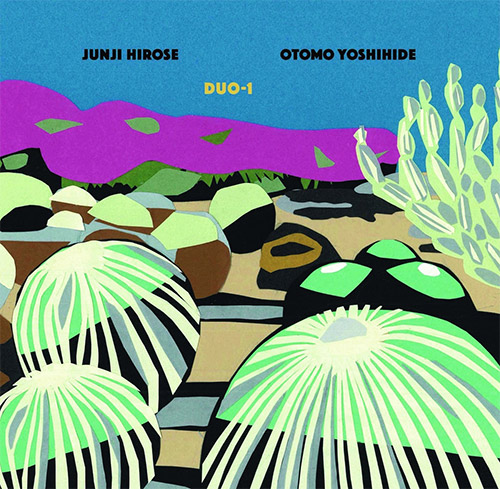


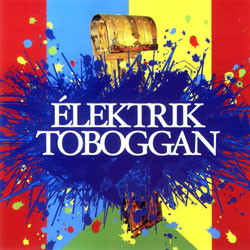





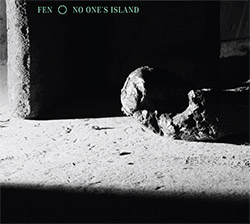
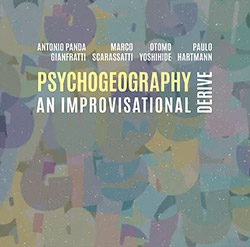



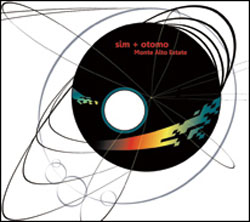
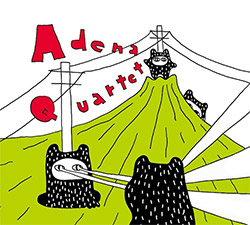

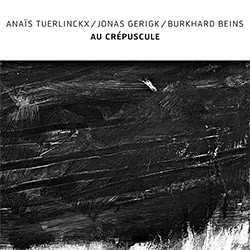
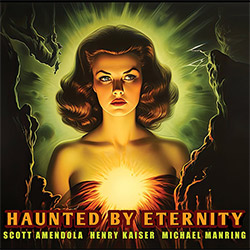

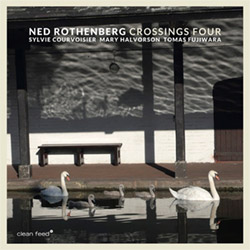
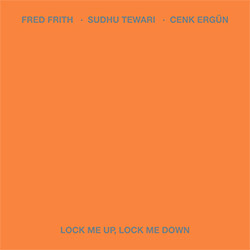
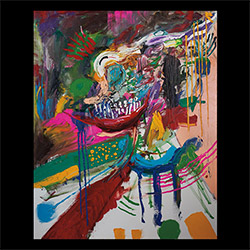
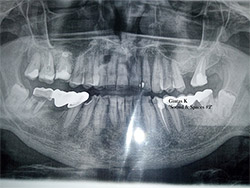









![+DOG+: The Light Of Our Lives [2 CDs]](https://www.teuthida.com/productImages/misc4/36009.jpg)


![Parker, Evan / Jean-Marc Foussat: Insolence [VINYL]](https://www.teuthida.com/productImages/misc4/36398.jpg)










![Deupree, Jerome / Sylvie Courvoisier / Lester St. Louis / Joe Morris: Canyon [2 CDs]](https://www.teuthida.com/productImages/misc4/36404.jpg)


![Eternities: Rides Again [CASSETTE]](https://www.teuthida.com/productImages/misc4/36247.jpg)

![Lopez, Francisco: Untitled (2021-2022) [2 CDs]](https://www.teuthida.com/productImages/misc4/36438.jpg)




![Eventless Plot | Haarvol: The Subliminal Paths [CASSETTE + DOWNLOAD]](https://www.teuthida.com/productImages/misc4/36232.jpg)







![Eventless Plot | Francesco Covarino: Methexis [CASSETTE + DOWNLOAD]](https://www.teuthida.com/productImages/misc4/36231.jpg)



![Das B (Mazen Kerbaj / Mike Majkowski / Magda Mayas / Tony Buck): Love [VINYL]](https://www.teuthida.com/productImages/misc4/36329.jpg)



![Hemphill Stringtet, The: Plays the Music of Julius Hemphill [VINYL]](https://www.teuthida.com/productImages/misc4/36409.jpg)









![Money : Money 2 [2 CDs]](https://www.teuthida.com/productImages/misc4/35894.jpg)




![Klinga, Erik: Elusive Shimmer [VINYL]](https://www.teuthida.com/productImages/misc4/36258.jpg)
![CHANGES TO blind (Phil Zampino): Volume 9 - I Wave on a Fine Vile Mist [CD + DOWNLOAD]](https://www.teuthida.com/productImages/misc4/36061.jpg)

![Wallmart / Rubbish: Asset Protection [split CD]](https://www.teuthida.com/productImages/misc4/35900.jpg)


![+Dog+: The Family Music Book Vol. 5 [2 CDs]](https://www.teuthida.com/productImages/misc4/35897.jpg)
![Kuvveti, Deli : Kuslar Soyledi [CASSETTE w/ DOWNLOAD]](https://www.teuthida.com/productImages/misc4/36107.jpg)

![Nakayama, Tetsuya: Edo Wan [CASSETTE w/ DOWNLOAD]](https://www.teuthida.com/productImages/misc4/36105.jpg)

![Brown, Dan / Dan Reynolds: Live At The Grange Hall [unauthorized][CASSETTE]](https://www.teuthida.com/productImages/misc4/36245.jpg)








![Palestine, Charlemagne / Seppe Gebruers: Beyondddddd The Notessssss [VINYL]](https://www.teuthida.com/productImages/misc4/36206.jpg)
![Palestine, Charlemagne / Seppe Gebruers: Beyondddddd The Notessssss [NEON GREEN VINYL]](https://www.teuthida.com/productImages/misc4/36207.jpg)

![Laubrock, Ingrid: Purposing The Air [2 CDs]](https://www.teuthida.com/productImages/misc4/35639.jpg)

![Yoko, Ono / The Great Learning Orchestra: Selected Recordings From Grapefruit [2 CDs]](https://www.teuthida.com/productImages/misc4/35841.jpg)









![Zorn, John / JACK Quartet: The Complete String Quartets [2 CDs]](https://www.teuthida.com/productImages/misc4/35609.jpg)

![Lonsdale, Eden: Dawnings [2 CDs]](https://www.teuthida.com/productImages/misc4/35480.jpg)



![Sorry For Laughing (G. Whitlow / M. Bates / Dave-Id / E. Ka-Spel): Rain Flowers [2 CDS]](https://www.teuthida.com/productImages/misc4/35985.jpg)

![Rolando, Tommaso / Andy Moor : Biscotti [CASSETTE w/ DOWNLOADS]](https://www.teuthida.com/productImages/misc4/36106.jpg)


![Electric Bird Noise / Derek Roddy: 8-10-22 [CD EP]](https://www.teuthida.com/productImages/misc4/35970.jpg)








![Elephant9 : Mythical River [VINYL]](https://www.teuthida.com/productImages/misc4/34624.jpg)



![Elephant9 with Terje Rypdal: Catching Fire [VINYL 2 LPs]](https://www.teuthida.com/productImages/misc4/35355.jpg)
![Deerlady (Obomsawin, Mali / Magdalena Abrego): Greatest Hits [VINYL]](https://www.teuthida.com/productImages/misc4/34876.jpg)







![Surplus 1980: Illusion of Consistency [CD]](https://www.teuthida.com/productImages/misc4/35069.jpg)
![Staiano, Moe: Away Towards the Light [VINYL + DOWNLOAD]](https://www.teuthida.com/productImages/misc4/35037.jpg)
![Coley, Byron: Dating Tips for Touring Bands [VINYL]](https://www.teuthida.com/productImages/misc4/17906.jpg)

![Lost Kisses: My Life is Sad & Funny [DVD]](https://www.teuthida.com/productImages/misc4/lostKissesDVD.jpg)